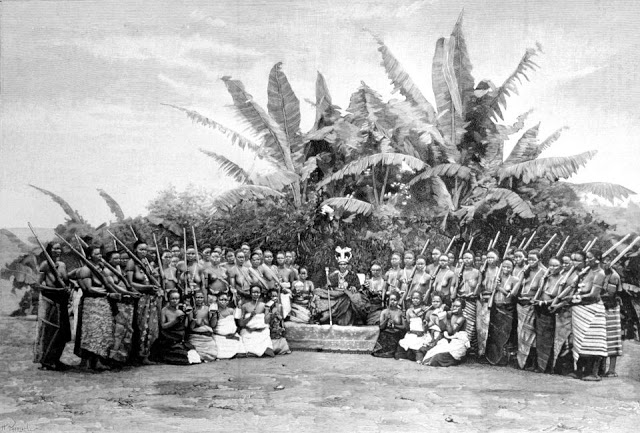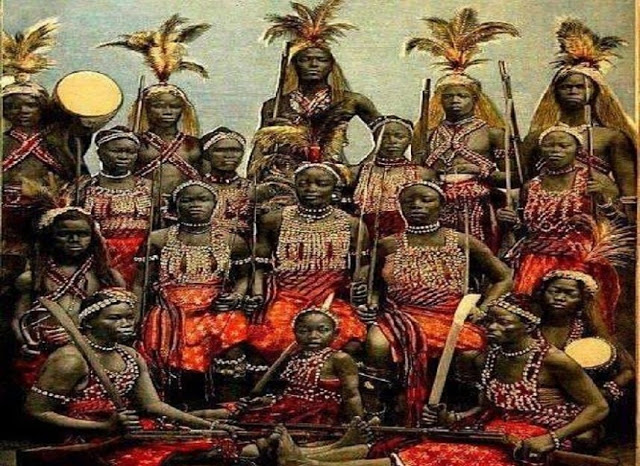by Staff writer
Do you know that the on-screen bodyguards of Wakanda in Marvel’s Black Panther called Dora Milaje are actually inspired by a real-life tribe of African women fighters known as the Dahomey Amazons?
Dahomey Amazons were an all-female military regiment, created by King Houegbadja in the 19th century, chosen for their incredible ability to fight men.
Often recruited as virgin teenagers, the fierce women would live in the royal palace in what was then the kingdom of Dahomey – now known as the modern day Republic of Benin.
They called themselves N’Nonmiton (or Mino), which means “our mothers” and dedicated their efforts to weapons training and protecting the king on the bloodiest battlefields.
 |
| The women were made up different units, each with its own battle songs, and were allegedly equipped with Danish guns and their own uniform. |
In later years, they were apparently armed with Winchester rifles, clubs and knives and swift decapitation became their trademark.
Dahomey women were trained to be strong, fast, ruthless and fought to the death, according to reports.
Their battle motto was “Conquer or Die!”
Their training exercises resembled a form of gymnastics, including jumping over walls covered with thorny acacia branches and being sent on 10-day “Hunger Games-style” expeditions in the jungle with only a machete.
They also learnt survival skills and insensitivity training, with one initiation test involving seeing whether the women were merciless enough to throw bound human prisoners of war to their deaths from a fatal height.
The women weren’t allowed to marry or have children, as by joining the regiment they were legally married to the king.
 |
| Black Panther’s Dora Milaje |
Some of the women had became soldiers by their own volition, while others were enrolled by husbands who complained they couldn’t control their “unruly” wives.
Reports suggest there were between 1,000 and 6,000 members before the regiment was disbanded in the 20th century as part of French colonial expansion.



